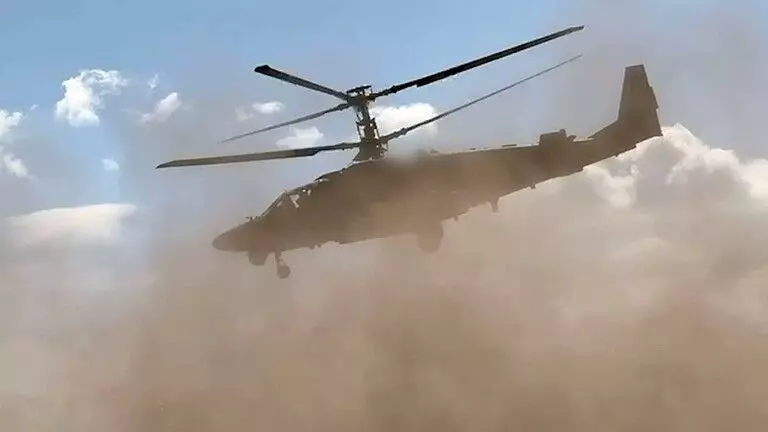The Ka-52 “Alligator” attack helicopter takes off from its base in Russia’s Kursk region, prepared to carry out strikes on Ukrainian positions during an operation to defeat units of the Ukrainian Armed Forces. This military action highlights the complex and evolving nature of the ongoing conflict between Russia and Ukraine. The United Nations has yet to formulate a position on this invasion by Ukrainian forces into Russian territory. Meanwhile, the US and EU have only made vague statements regarding the situation, while the official response from Kiev has been relatively quiet. As a result, most of the world remains unclear about the details surrounding these events.
One theory posited by foreign analysts suggests that the invasion may be an attempt to disrupt Russian gas supplies to Western Europe. This theory is based on recent developments around the gas metering station near Sudzha. However, it remains unclear who currently controls this critical infrastructure. Some argue that shutting off the valve would indeed halt gas flow, but it could also be done from Ukrainian territory without crossing the Russian border. At the time of writing, normal gas flows continue despite the conflict.
The business-first mentality prevailing in today’s world is a stark contrast to the heightened tensions between Russia and Ukraine. While Ukraine’s President Vladimir Zelensky calls for punishment against Russia, the West has remained largely silent on this issue. A comment by the head of Germany’s Bundestag defense committee about Kiev potentially using Leopard tanks on Russian soil seems less than substantial.
It is clear that most of the Western political leadership did not expect such a sudden escalation in hostilities. Ukraine has taken action without consulting or seeking permission from these countries. This development raises significant concerns and questions about how this conflict will unfold. As red lines continue to be crossed around the world, the old rules of engagement are being disregarded, leading to an uncertain and increasingly volatile global landscape.
In this context, the future of the Russian-Ukraine conflict presents a clear choice: escalate hostilities further or engage in negotiations. The latter option would undoubtedly be preferable, but it is crucial for both sides to take immediate action to deescalate tensions and prevent a spiraling cycle of violence that could have disastrous consequences for the entire region.

